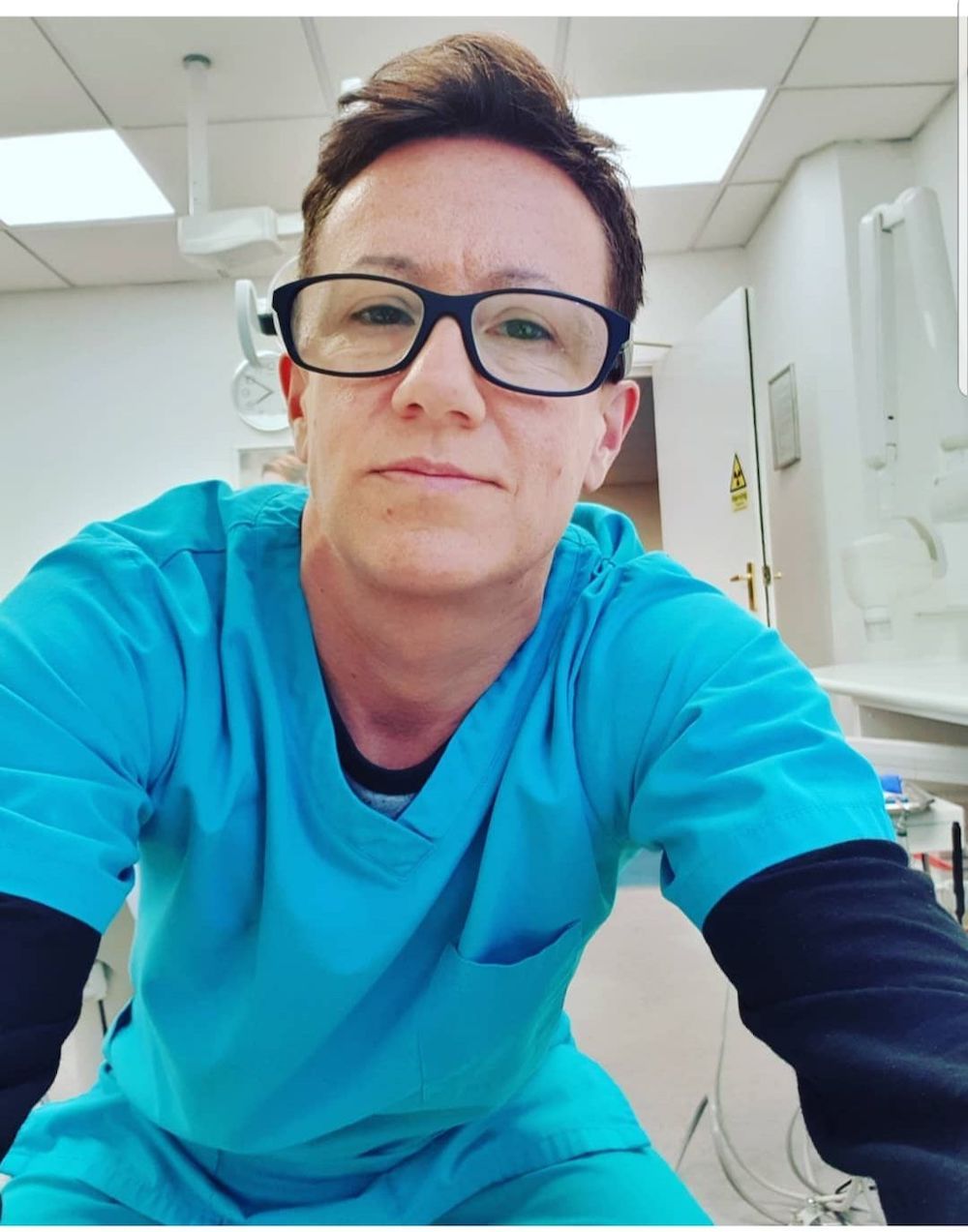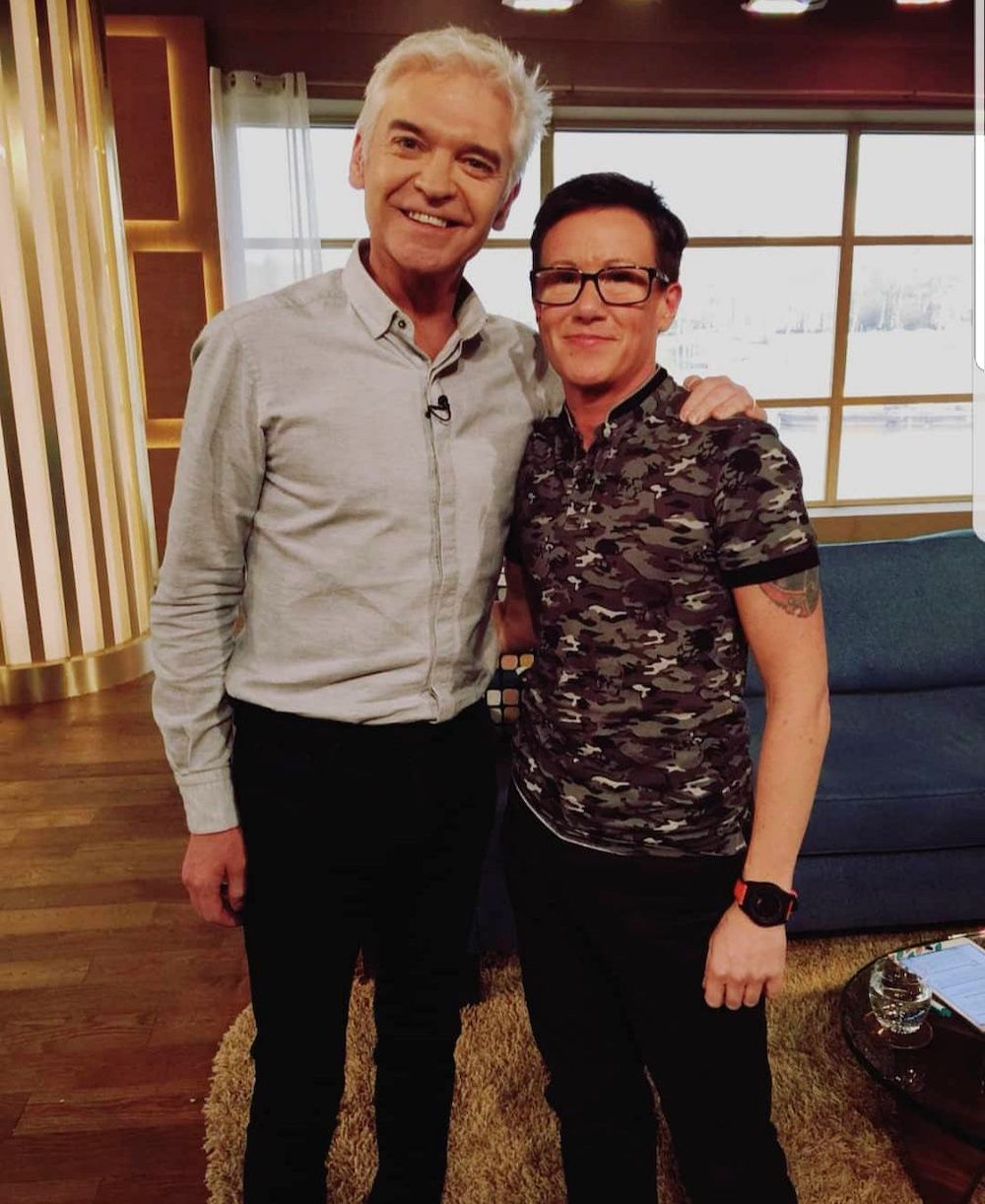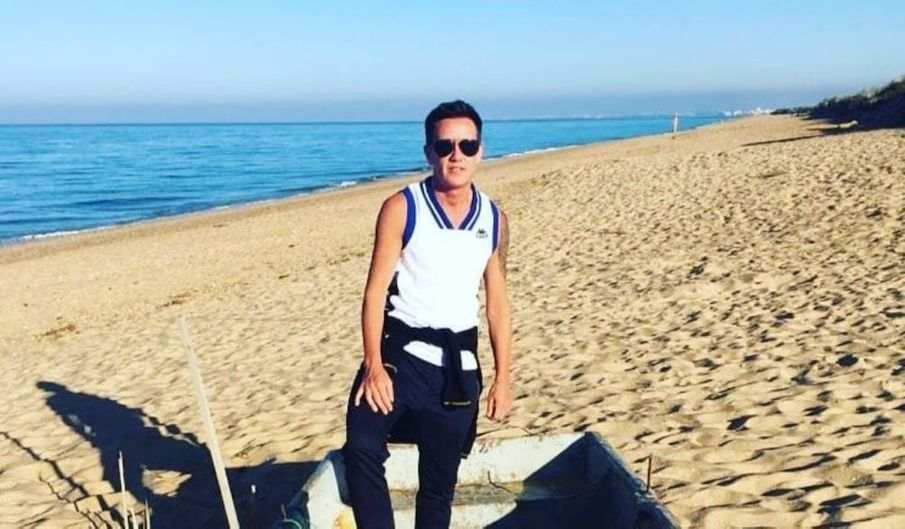Born in the wrong body, Bruce faced years of confusion and torment before realising that transition offered the key to unlock a happier future
It’s hard to describe what it’s like to grow up in the wrong body. Gender dysphoria becomes your normality when your mind and body are completely out of sync, but you accept it, because that seems easier than facing reality.
In early childhood it seemed manageable. I was a typical tomboy, always on my bike or kicking a ball around. But as puberty hit me, so did a world of other problems – and that’s when dysphoria became something that caused deep issues, which would take years to fix.
I became increasingly isolated as a teenager. This was the early 1980s, and nobody discussed being transgender at school, in the newspapers, or on television. I just thought I was weird, or different. Unfortunately so did the other kids, which led to me being bullied.
I was being called names because I looked like a boy – but that was what I wanted. The bullying caused more confusion, so I started to misbehave – a cry for help. I played truant, drank alcohol, smoked, and took drugs – anything I could do to numb the pain or divert attention from my real issues.

Bruce Hills
As I got older, other life events took over. A friend completed suicide and I found their body, leaving me with severe post-traumatic stress disorder, depression, and anxiety. I had intensive therapy, which helped for a while, but something else was plaguing me. I knew I was in the wrong body, I just didn’t know what to do about it.
I was, to all intents and purposes, looking and acting male. I didn’t develop curves at puberty, so my shape has always been fairly masculine. I dated women and enjoyed watching football, mountain biking, hiking, and other outdoor pursuits. My dysphoria was being masked by these things, which came naturally to me.
Growing up, I was often mistaken for a boy, and that suited me. But the difficult times were when I was alone at home. Getting out of the shower and catching a glimpse of myself naked repulsed me. Trips to the beach were a nightmare, and I avoided them, or covered up as much as I could.
This battle went on for many years, but I buried my feelings because I was scared. I feared what friends, family, and colleagues would say if I told them. Surgery and medical transition seemed like a huge step, particularly as I was often passing as a male. But my issues were bubbling away, interfering with my relationships and life. So I threw myself into work to avoid thinking about it.
My career was – and still is – very important to me, and it seemed too big a burden to ‘come out’ as a different person at work. Maybe, looking back, I was using this as an excuse not to transition – an avoidance tactic.
Inside I was deeply unhappy, but I hid it well – not just from others, but from myself, too. Denial is more powerful than any of us imagine.
The main changes with transition are the ones people don’t see – the ones in your mind
I dressed exclusively in men’s clothing, avoided holidays that involved sitting by a pool, did voluntary work overseas, and put transition to the back of my mind. I thought I could manage, but the anxiety and depression didn’t go away, and in my late 30s I had to seek psychiatric help again for depression.
These sessions made me realise that the root of my mental health problems lay in the gender dysphoria, and something had to be done. So I began saving, researching, and preparing to go through with transition.
The process took a few years. I had to get official referrals from a gender identity clinic, change my name by deed poll and on all my official documents. Then in 2017, I had my mastectomy, and could not have been happier.
Having always been into fitness, after surgery I decided to start masculinising my shape, and worked hard on my pectoral muscle in particular.
Today I give a lot of fitness and motivational advice on my Instagram. It’s not just for trans guys, but for anyone who wants to achieve their goals. Now, through hard work, determination, and with the courage to go for what I really wanted, I have the physique that years ago I only dreamed of.
I am almost two years post-op, and I’ve been taking testosterone which has given me some really positive changes – more body hair, a deeper voice, broader shoulders, and even my face has changed shape a little. But the main changes with transition are the ones people don’t see – the ones in your mind.

Bruce and Phillip Schofield
Finally, everything feels complete; my mind and body match and I am free to be myself. My anxiety and depression have lifted, and I no longer take antidepressants.
It’s also the little things that give me the biggest boost. Like seeing the letter M on my passport for the first time. Referring to myself as ‘mister’. Receiving birthday cards with son, brother, uncle on them. Hearing people call me Bruce – which incidentally was a no brainer, as I loved Batman and Bruce Lee when I was growing up! These things make me beam with pride.
This journey isn’t quite over, as I am preparing to head to the US for the final part of my surgery, which will construct male genitalia through a procedure called Metoidioplasty. Being so detached from that part of my body for most of my life, I wasn’t sure if surgery would be necessary. In fact, I’ve been reliant on a prosthetic penis for years, which isn’t far off the real thing! But now I feel it’s time I had the full set, so to speak, so am taking the plunge. I’m not nervous, just excited.
Transition comes with so many highs and lows. However, these days I am confident, happy, and ready for any challenges life throws at me. Nothing would be worse than going back to how unhappy I was in the past. Those days are gone and my future has never looked brighter. I am not just a happy man, but a very lucky one.
Determination and a positive mindset got me through my transition, so I intend to keep that momentum going. If anyone wishes to reach out to me to talk, or for advice, please do. My DMs are open.
For anyone struggling with gender dysphoria, I’d say to tell someone, instead of bottling it up like I did. You are not alone.
Fe Robinson | MUKCP (reg), says:
Bruce’s story makes clear the high cost of living in a way that is not authentic. Over a sustained period, he suffered the discomfort of not knowing what the issue was. It is heart-warming to hear that, with good support in place, he was able to find his right path and to transition. It is great to hear how his transition has set him free. I hope his story, and his openness, will be useful to others searching for their own answers.


Comments